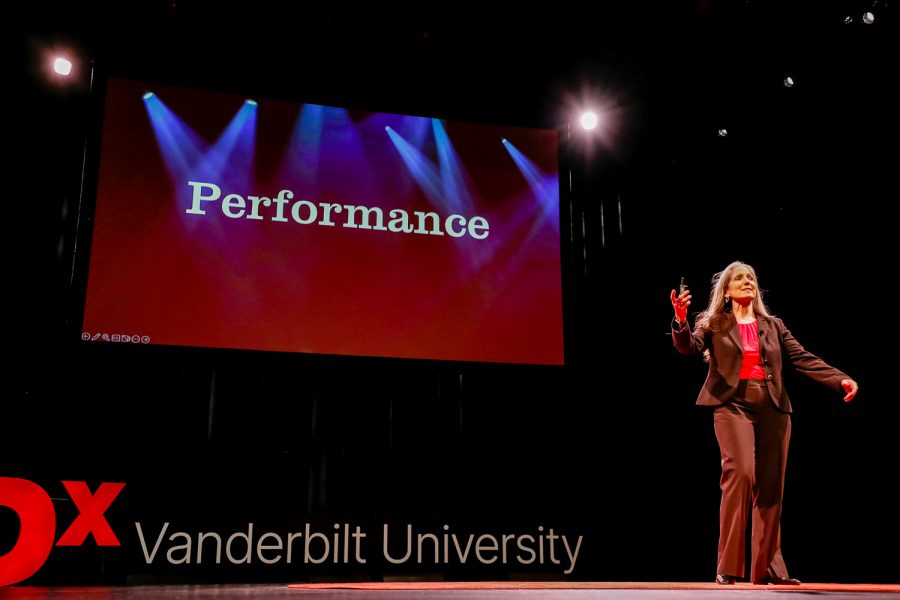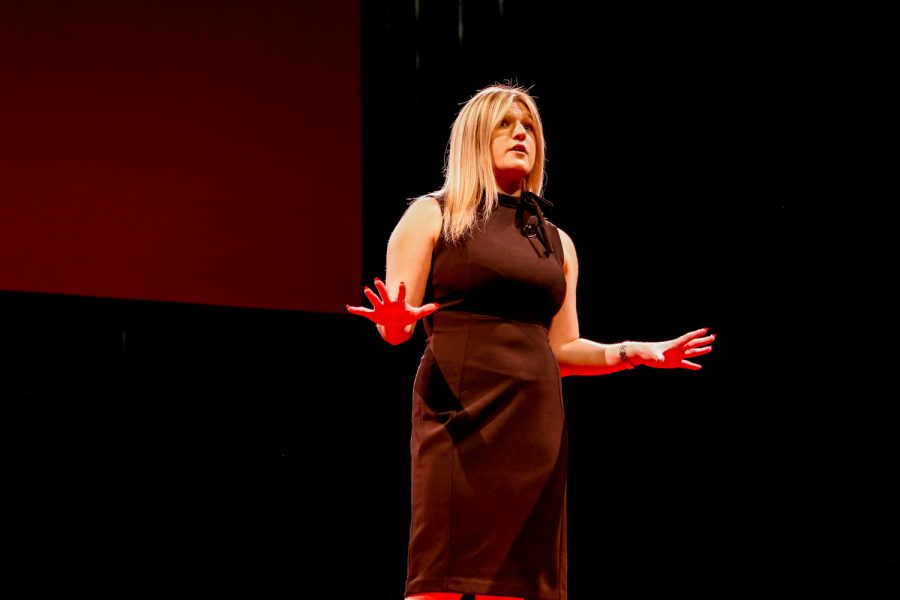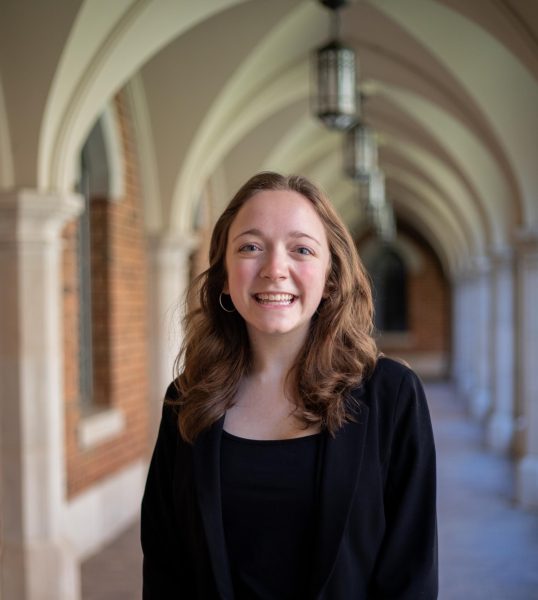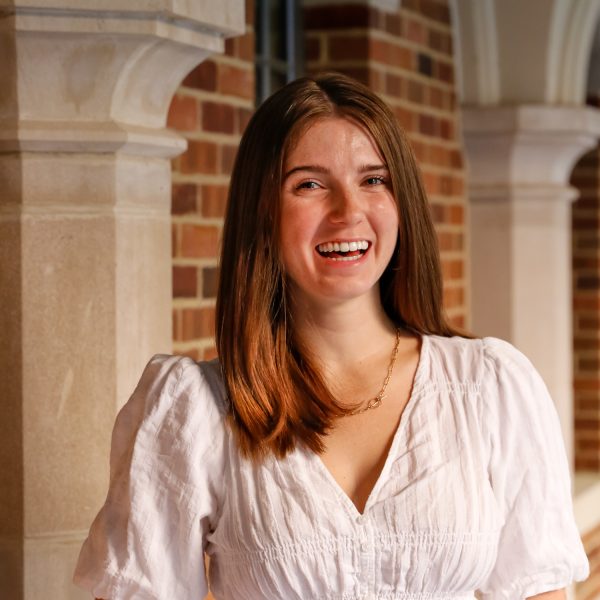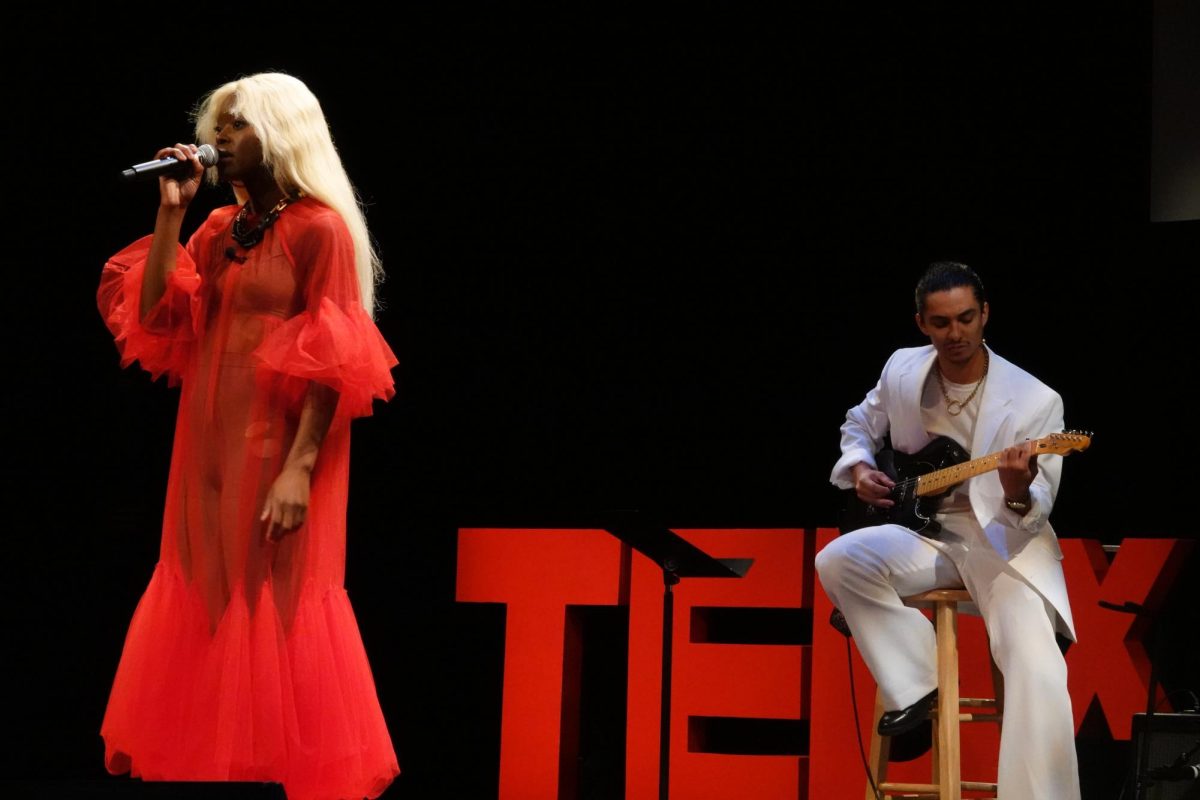Vanderbilt hosted a TEDx speaker event on April 18 featuring talks from students and faculty. Student speakers included senior Rachel Brewer and junior Aaditi Lele as well as second-year graduate student Alejandra Flores and Benjamin Collins, a postdoctoral fellow in the Biomedical Informatics and Biomedical Ethics departments. Faculty speakers included Blythe Corbett — a professor in the Department of Psychiatry and Psychology — and Assistant Dean for Student Affairs for the School of Nursing Feylyn Lewis.
TEDxVanderbiltUniversity is a chapter of the TEDx program of self-organized events involving local speakers. The event was followed by a reception in which speakers engaged with attendees. The university has hosted an annual TEDxx event since 2015. This is the first in-person TEDx event at Vanderbilt since 2019.
Director of Strategy and Operations for Vanderbilt University Marketing and Communications Daniel Dubois opened the event by introducing the speakers.
“The diverse experiences and perspectives they [the speakers] share showcase the rich tapestry of our campus community,” Dubois said. “We believe tonight’s talks will move you to think, feel and act differently long after you leave this space.”
Flores began by sharing stories of gendered violence against women in Juárez, Mexico where she grew up. She spoke about her own experiences as a young girl being afraid to leave the house due to the prevalence of this violence. She said International Women’s Day in Mexico is not just about commemorating women but also standing up for justice and remembering victims of gendered violence.
“Silvia, Ingrid, Jennifer, Joanna — I could spend hours here saying their names. So many of us who never came home and we don’t know what happened to most of them,” Flores said. “Here I am speaking for all of those who lost their voice.”
Collins discussed his research on how AI technology can be used in healthcare and the associated risks and benefits of doing so.
“There’s the potential for patients to benefit significantly from more accurate, more efficient, more cost effective and more personalized care,” Collins said. “It is also possible that these benefits go unseen or unfairly distributed or that patients are harmed by poorly guided or biased decisions.”
Corbett explained her work as the founder of SENSE Theatre — an intervention research program designed to promote social competence in individuals with autism spectrum disorder.
“The theater can be a safe, supportive, creative, and inclusive space. Acting allows us to build a character to improvise and come up with other ways of responding and it gives us a unique window into the human condition,” Corbett said. “And perhaps most importantly, it’s like a personality test. It helps build confidence to be ourselves.”
Brewer discussed her study abroad experience and her initial belief that ketchup was fundamentally American although her exploration of the condiment’s history revealed its culturally diverse background.
“How much of this quintessentially American condiment is actually American?” Brewer said. “It’s based on a British version of an Asian sauce that was adopted in the States for a fruit native to South America.”
Brewer explained her intention of showing how the history of the condiment displays a broader story of blurring cultural boundaries.
“Food is a joyful and approachable place to begin exploring our cultural identities — where they come from, how we construct them, where their identities lie,” Brewer said. “So I invite you all to — just once in a while — contemplate your food. Have a conversation about what it is and where it comes from. And you’ll probably find that those boundaries are a lot less defined than you think.”
Lewis shared her experience caring for her disabled mother while growing up and explained how this led her to research the mental wellbeing of “young caregivers” — children required to care for their guardian — in Europe. She said her work estimated that over 5.4 million children under the age of 18 with a caregiving role in the United States, and she believes this number has grown following COVID-19.
“Youth caregivers are the safety net to our broken and failed social and healthcare system in this country,” Lewis said. “They save the government billions of dollars in care yet they are hidden, unsupported and unrecognized.”
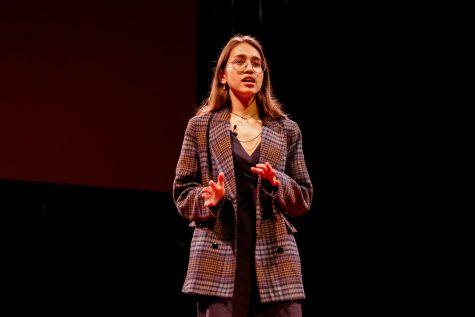
Lele, a junior, closed the event with insight into the American immigrant experience. She described that immigrants like her often receive backhanded compliments like “your English is so good,” but also receive pushback when they use their voice to criticize American government and politics. Lele is the News Editor of The Hustler.
“In telling us that we did a great job at passing as American — that our English had gotten good enough and that our accents weren’t giving us away — these seemingly innocent comments affirm an assumption that the goal of every new member of this country should be conforming and fitting in to an American ideal,” Lele said. “Essentially, Americans want immigrants that are willing to become more American.”
Senior Maya Biran said she enjoyed the variety of topics explored by the speakers.
“It was a good range of topics,” Biran said. “When [Brewer] said she was going to talk about ketchup, I didn’t really know what she meant or what the others were going to talk about, but it was good.”

